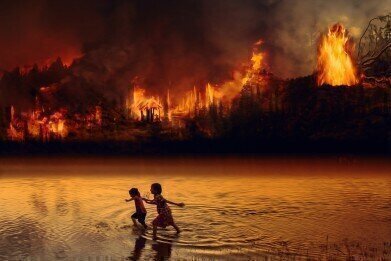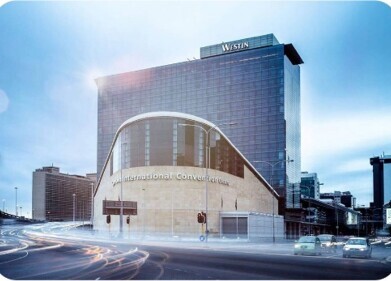Business News
Will Brazil's Fire Ban Make a Difference?
Sep 10 2019
In response to international pressure, Brazilian President Jair Bolsonaro finally introduced a ban on setting fires in the Amazon rainforest to clear the land for agricultural purposes at the start of this month. Amid widespread criticism, Bolsonaro also sent 44,000 army troops into the world’s largest forested area to fight the blazes that are already raging there, although he reiterated that he would not accept overseas aid.
However, data collected by Brazil’s National Space Research Institute (INPE) in the two days after the introduction of the ban shows that almost 4,000 fires were deliberately started in the country, with around half of those located in the Amazon. What’s more, environmentalists are concerned that even if the practice is brought under control, Bolsonaro’s (and global) efforts might be simply too little, too late.
A bad year for Amazon infernos
Given that rainforests are just as critical to the environment as water, and that two-thirds of the world’s largest rainforest are located in Brazil, it’s understandable that other countries are keen for “the lungs of the world” to be properly cared for. In recent years, previous administrations have made concerted progress on limiting the outbreak of forest fires in the country and implementing better measures to safeguard the Amazon. However, things have suffered something of a reversal since Bolsonaro came to power at the start of this year.
That backsliding has been illustrated most clearly in the facts. From January to August 2019, over 72,000 fires have been detected in the country; that’s the highest total since 2010 and a whopping 83% increase on last year. The alarming stats have prompted the global community to pressure Bolsonaro into tackling the situation, but he has steadfastly refused financial aid, claiming he does not want to see his country colonised under environmental pretensions.
Too little, too late?
Despite this rejection and an ongoing war of words with French President Emmanuel Macron, Bolsonaro finally caved in to pressure at the beginning of September, announcing a 60-day ban on starting fires in the country. However, the INPE data shows that there were 3,859 outbreaks of new blazes in the first 48 hours after the introduction of the embargo, signalling that his words have gone unheeded by the country’s agricultural community.
Furthermore, the felling of trees is just as big a concern as their combustion in environmental terms, since rainforests are responsible for not only absorbing carbon from the air, but storing it indefinitely after the fact. Once a tree is felled, it begins to release that carbon into the atmosphere, regardless of whether it is ignited or not. Therefore, farmers can continue to chop down the Amazon legally, before burning the trees once the 60-day ban has elapsed. In this sense, the fire ban will make very little difference to the current crisis – or to the future of our planet and the ambitions of the Paris agreement.
Digital Edition
IET 34.2 March 2024
April 2024
Gas Detection - Biogas batch fermentation system for laboratory use with automatic gas analysis in real time Water/Wastewater - Upcycling sensors for sustainable nature management - Prist...
View all digital editions
Events
Apr 30 2024 Melbourne, Australia
Apr 30 2024 Birmingham, UK
May 03 2024 Seoul, South Korea
May 05 2024 Seville, Spain
May 06 2024 Minneapolis, MN, USA



















